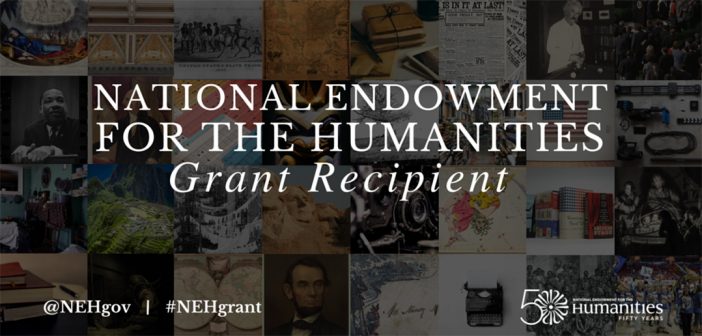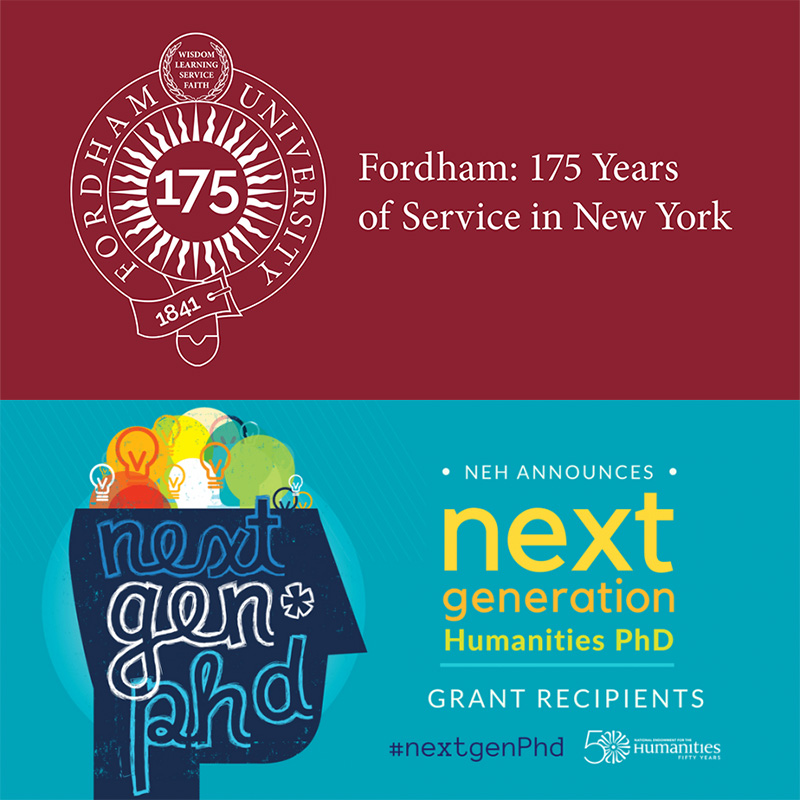A grant from the National Endowment for the Humanities (NEH) is placing the Graduate School of Arts and Sciences (GSAS) at the vanguard of a nationwide conversation about transforming doctoral programs in the humanities.
Fordham is one of 28 colleges and universities to win a Next Generation PhD matching grant, which aims to overhaul doctoral programs in the humanities to better prepare students for 21st-century job prospects within and outside of academia.
“The future of doctoral training in the humanities depends on innovative models that will deliver the competencies and skills that doctorate holders need to succeed in a variety of career pathways, in addition to traditional faculty lines,” said Eva Badowska, PhD, dean of GSAS and grant director, alongside co-director, Matthew McGowan, PhD, associate professor of classics.
“As a graduate school within a Jesuit university recognized for its strengths in the humanities, GSAS is uniquely situated to ask what it means truly to prepare our doctoral candidates for the fast-changing world of higher education and for the new knowledge economy,” Badowska said.
Historically, doctoral programs have prepared graduates solely for work in academia. However, with a 30 percent decline in academic job postings in the humanities since 2008, this singular focus is no longer realistic for students graduating from these programs.
“Thousands of professors are currently in the business of preparing thousands of graduate students for jobs that don’t exist,” Leonard Cassuto, PhD, professor of English and a collaborator on the project, said in his recent book, The Graduate School Mess: What Caused It and How We Can Fix It (Harvard University Press, 2013).
The $25,000 planning grant, to be matched by an additional $25,000 from GSAS, will not only propose rethinking Fordham’s five doctoral programs in the humanities (classics, English, history, philosophy, and theology), but will also examine what a 21st-century PhD program at any institution should encompass. For instance, what advanced transferrable skills should be taught at the doctoral level? Should skills such as collaborative teamwork and advanced digital proficiency be treated on a par with traditional emphases, such as mastery of field-specific knowledge and independent research skills?
In addition to Badowska and McGowan, the project includes a Core Planning Group and Constituent Advisory Group comprising GSAS faculty, current doctoral candidates, alumni, and community leaders who would benefit from hiring graduates with doctoral-level expertise.
At the end of the academic year, the group will produce a white paper detailing the proposed model.
“We want to rethink how we deliver the PhD at our University, but also make it scalable to other institutions and humanities programs,” said Melissa Labonte, PhD, associate dean of GSAS and associate professor of political science. “To do right by the students in these programs, we need to rethink the entire model. This planning grant will allow us to begin this process.”
A key part of the grant will address making doctoral programs in the humanities more inclusive of underrepresented, underserved, and marginalized communities, Labonte said. Within these groups, the percentage of students who enroll in a doctoral-level program has dropped precipitously in recent decades.
“We’re trying to find ways to counter this trend,” Labonte said. “This part of the grant falls very much in line with Fordham’s mission. If we’re going to embrace progressivism and social justice models, then we have to think about how PhD programs in the humanities will address the needs of people from underserved communities.”
The NEH announced the Next Generation PhD grants winners on Aug. 9 as part of $79 million in grants for 290 humanities projects and programs across the country, an initiative the group undertook to mark its 50th anniversary year.




